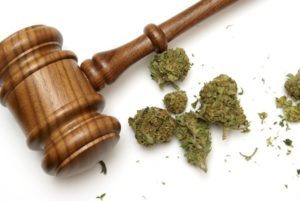 The amended 2C:52-2 section ends with the following:
The amended 2C:52-2 section ends with the following:
d. In the case of a State licensed physician or podiatrist convicted of an offense involving drugs or alcohol or pursuant to section 14 or 15 of P.L.1989, c.300 (C.2C:21-20 or 2C:21-4.1), the petitioner shall notify the State Board of Medical Examiners upon filing an application for expungement and provide the board with a copy thereof. The petitioner shall also provide to the court a certification attesting that the requirements of this subsection were satisfied. Failure to satisfy the requirements of this subsection shall be grounds for denial of the expungement application and, if applicable, administrative discipline by the board.
(cf: P.L.2017, c.244, s.1)
N.J.S.2C:52-3 is amended to read as follows:
2C:52-3. Disorderly persons offenses and petty disorderly persons offenses.
a. Any person who has been convicted of one or more disorderly persons or petty disorderly persons offenses under the laws of this State who has not been convicted of any crime, whether within this State or any other jurisdiction, may present an expungement application to a court pursuant to this section. Any person who has been convicted of one or more disorderly persons or petty disorderly persons offenses under the laws of this State who has also been convicted of one or more crimes shall not be eligible to apply for an expungement pursuant to this section, but may present an expungement application to the Superior Court pursuant to N.J.S.2C:52-2.
b. Any person who has been convicted of one or more disorderly persons or petty disorderly persons offenses under the laws of this State who has not been convicted of any crime, whether within this State or any other jurisdiction, may present an expungement application pursuant to this section to any court designated by the Rules of Court if:
the person has been convicted, under the laws of this State, on the same or separate occasions of no more than five disorderly persons offenses, no more than five petty disorderly persons offenses, or a combination of no more than five disorderly persons and petty disorderly persons offenses, and the person does not otherwise have any subsequent conviction for a disorderly persons or petty disorderly persons offense, whether within this State or any other jurisdiction, such that the total number of convictions for disorderly persons and petty disorderly persons offenses would exceed five.
The references to an expungement “applicant” at the end of the revised 2C:52-2 statute were changed to “petitioner.” This is consistent with the formalities of an expungement proceeding. While the majority of the expungement statute amendments make it easier to obtain relief, this section adds requirements for licensed physicians and podiatrists. The term “Superior Court” was changed to “a court”, likely due to the fact that municipal courts and appellate courts can issue expungement orders under limited circumstances.
